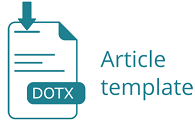STUDI KOMPARASI SEWA MENYEWA RAHIM ANTARA NEGARA INDIA DAN THAILAND DENGAN HUKUM DI INDONESIA DALAM ASPEK HUKUM PERDATA
Abstract
Keywords
Full Text:
PDFReferences
Buku:
Anil Dubey. 2012. Infertility Diagnosis, Management and IVF. London: JP Medical Ltd.
Desriza Ratman. 2012. Surrogate Mother Dalam Perspektif Etika Dan Hukum: Bolehkah Sewa Rahim Di Indonesia. Jakarta : Elex Media Komputindo.
Soerjono Soekanto dan Sri Mamudji. 2015. Penelitian Hukum Normatif Suatu Tinjauan Singkat. Jakarta : RajaGrafindo Persada.
Soerjono Soekanto. 2010. Pengantar Penelitian Hukum. Jakarta: UI-Press.
Sonny Dewi J, Susilowati Siparto D, Deviana Yuanitasari. 2016. Aspek Hukum Sewa Rahim dalam Perspektif Hukum Indonesia. Bandung : PT Refika Aditama.
Jurnal:
Alessandro Stasi. 2016. “Maternal Surrogacy and Reproductive tourism in Thailand: A Call for Legal Enforcement”. Legal Journal. Volume 8 Issue 16. Thailand: Mahido University International College.
Allison L. Simmerman. 2016. “Thailand’s Ban on Commercial Surrogacy: Why Thailand Should Regulate, Not Attempt to Eradicate”. Brooklyn Journal of International Law. Volume 41 Issue 2. Amerika Serikat: Brooklyn Works
Hestiantoro A, Soebijanto S. 2013. “Konsensus Penanganan Infertilitas”. Himpunan Endokrinologi Reproduksi dan Fertilitas Indonesia (HIFERI), Perhimpunan Fertilisasi In Vitro Indonesia (PERFITRI), Ikatan Ahli Urologi Indonesia (IAUI), Dan Perkumpulan Obstetri Dan Ginekologi Indonesia (POGI). Jakarta.
J. Srinivas Rao dan Matin Ahmad Khan. 2017. “Surrogacy in India: Current Perspective”. International Journal of Medical and Health Research.Volume 3 Issue 5.
Kari Points. 2008. “Commercial Surrogacy and Fertility Tourism in India; The Case of Baby Manji”. The Kenan Institute for Ethics at Duke University. Inggris: Universitas Duke
Olinda Timms; Rakhi Goshal. 2016. “Ending Commercial surrogacy in India: significance of the Surrogacy (Regullation) Bill”. Indian Journal of Medical Ethics. Volume III Nomor 2. India: Institut St. Johns.
Pikee Saxena; Archana Mishra; Sonia Malik. 2012. “Surrogacy: Ethical and Legal Issues”. Indian Journal of Community Medicine. Volume 37 Nomor 4.
Pooja Yadav. 2018. “Law and Policy on Surrogacy: A Comparative Study of India and Other Countries”. IJRST. Volume 4 Issue 2. India: Universitas Delhi
PRS Legislative Research. 2019. Bill Summary: The Surrogacy (Regulation)Bill 2019. India: PRS Legislative
Sonny Dewi Judiasih dan Susilowati S Dajaan. 2017. “Aspek Hukum Surrogate Mother Dalam Perspektif Hukum Indonesia”. Jurnal Bina Mulia Hukum. Volume 1 Nomor 2. Bandung: Universitas Padjadjaran
Soraj Hongladarom. 2018. “Surrogacy law in Thailand”. Chulalongkorn University. Thailand: Universitas Chulalongkorn
Internet:
Anonim. 2015. Thailand Bans Commercial Surrogacy for Foreigners.
https://www.bbc.com/news/world-asia-31546717 diakses pada 19 Agustus 2020 pukul 20.55 WIB.
John D. Battersby. 1987. South African Women Gives Birth to 3 Grandchildren and, History. https://www.nytimes.com/1987/10/02/world/southafrica-woman-gives-birth-to-3-grandchildren-andhistory.html#:~:text=A%2048%2Dyear%2Dold%20South,in%20the% 20debate%20surrounding%20surrogacy.
Diakses pada 9 Agustus 2020. Pukul.17.15 WIB.
Persatuan Rumah Sakit Seluruh Indonesia (PERSI). (2015). Infertilitas pada Pasangan Usia Subur. Jakarta. Http://www.pdpersi.co.id/content/ne ws.php?mid=5&catid=23&nid=729. Diakses pada 19 Agustus 2020
pukul 20.01 WIB.
Vasudevan Sridharan. 2019. Baby Ban: How India’s Strict New Surrogacy Law Practically. https://www.scmp.com/news/asia/south-asia/article/2182898/baby-ban-how-indias-strict-new-surrogacy-lawpractically.
Diakses pada 15 Mei 2020 pukul.21.37 WIB.
Bahan Hukum Lainnya:
Protection of a Child Born by Medically Assisted Reproductive Technology Act, B.E. 2558 (2015)
Refbacks
- There are currently no refbacks.














